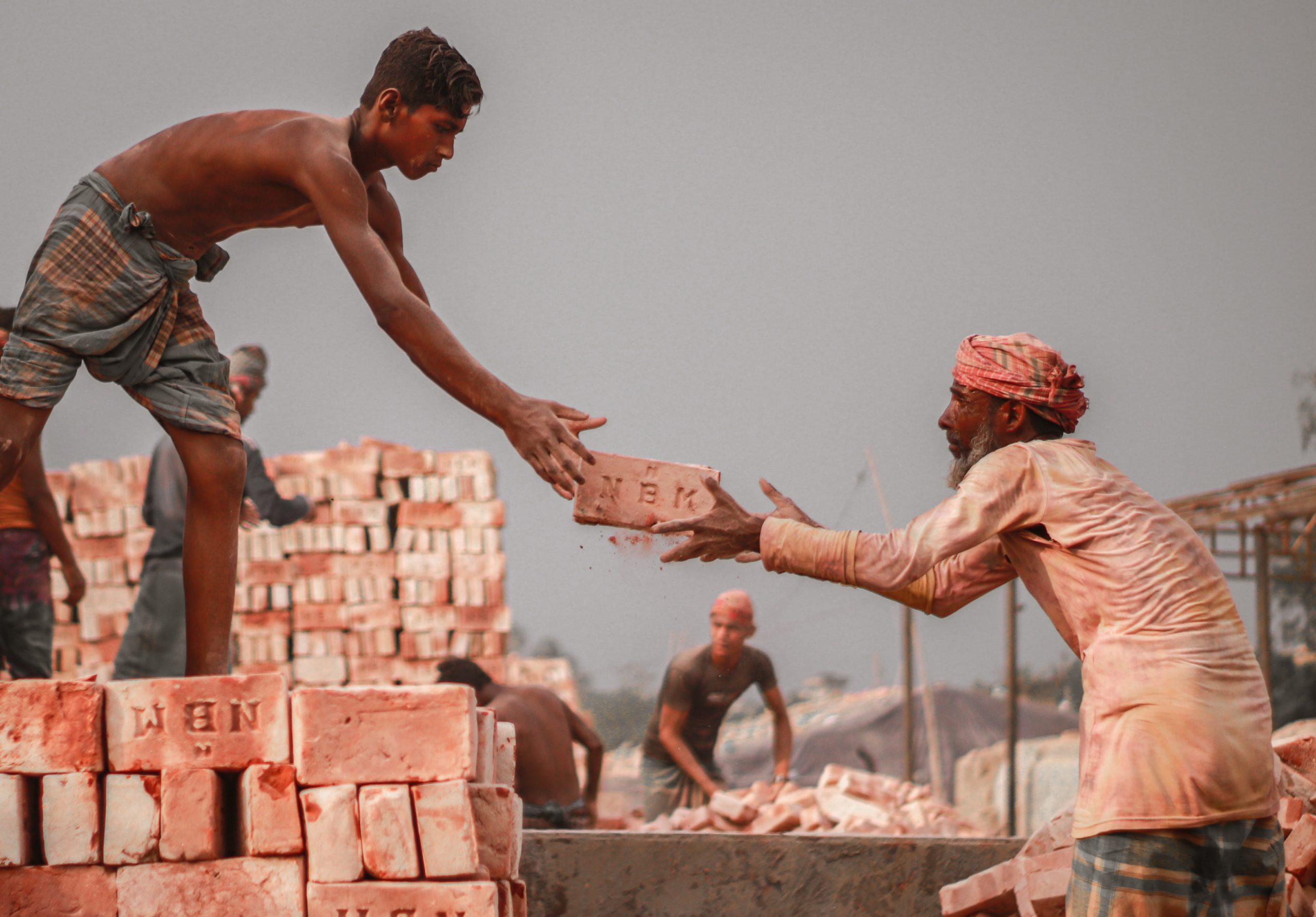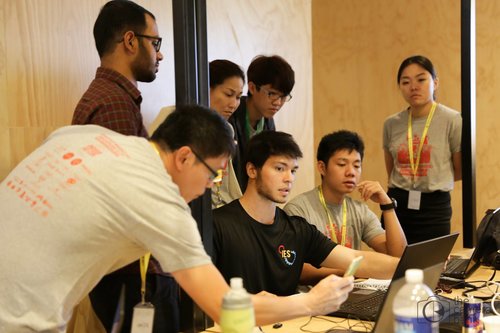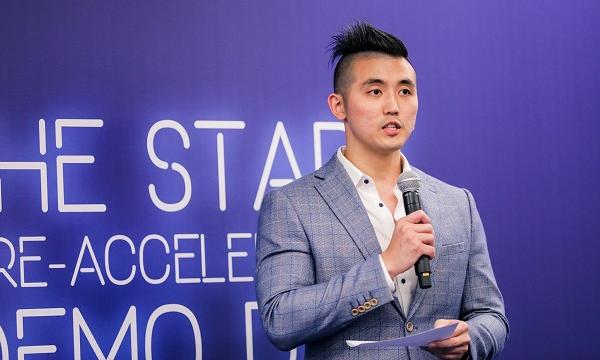Everyone knows how important it is to get sustainability right. It is closely interconnected with today’s global economy, societies, and the environment at large. Any serious solution needs to take into account a wide range of stakeholders and an even wider range of interests. It’s no surprise then that many see it as the greatest challenge the world has ever faced.
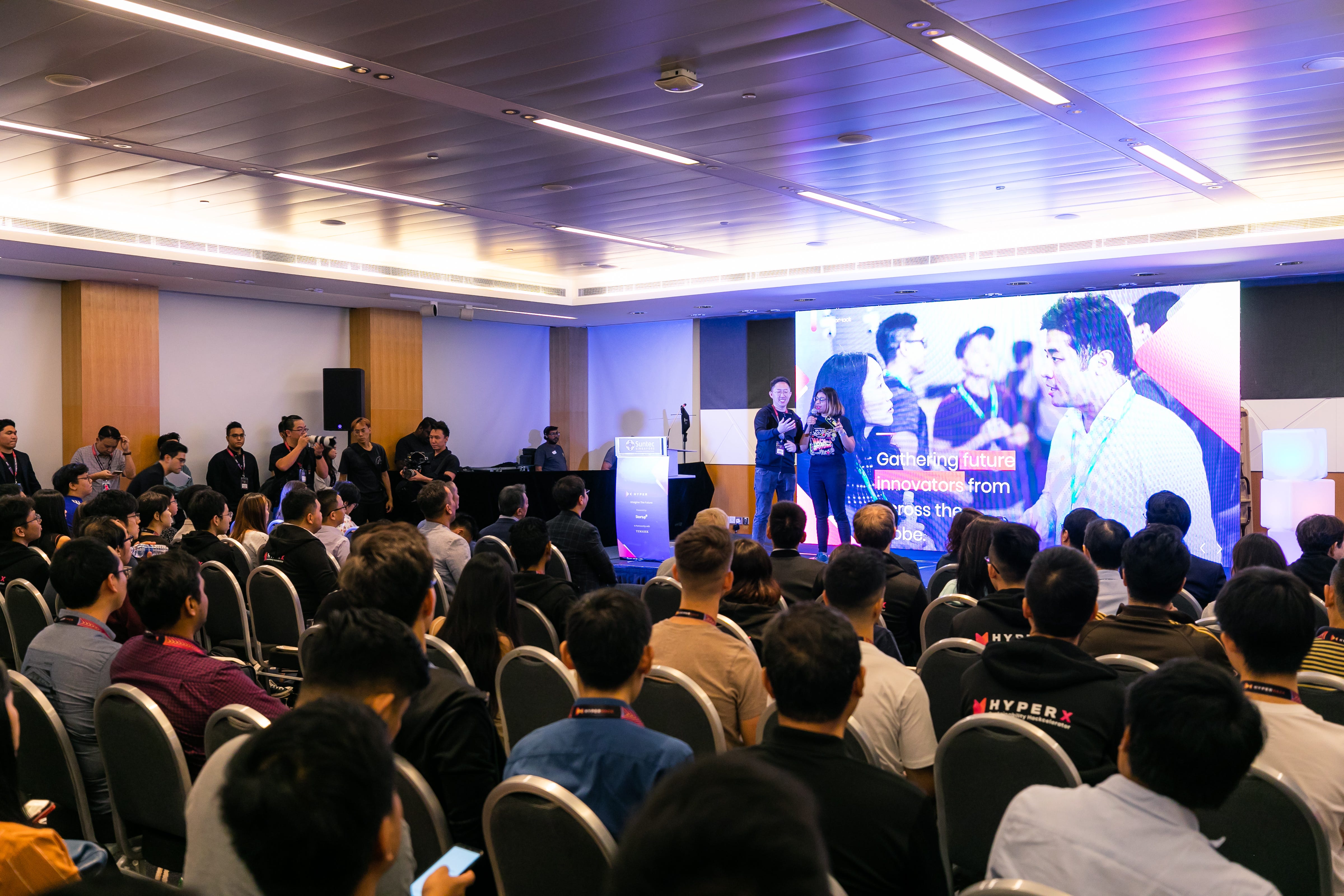
A single problem can be so multifaceted and all-encompassing such that it inspires solutions that fall on a wide spectrum. But regardless of their form, all of them strive to be economically viable, socially inclusive, and environmentally responsible. These characteristics were clearly evident in the nearly 50 ideas formulated by close to 180 sustainability-driven individuals at the recently concluded HyperHack Global Sustainability Hackathon 2019.
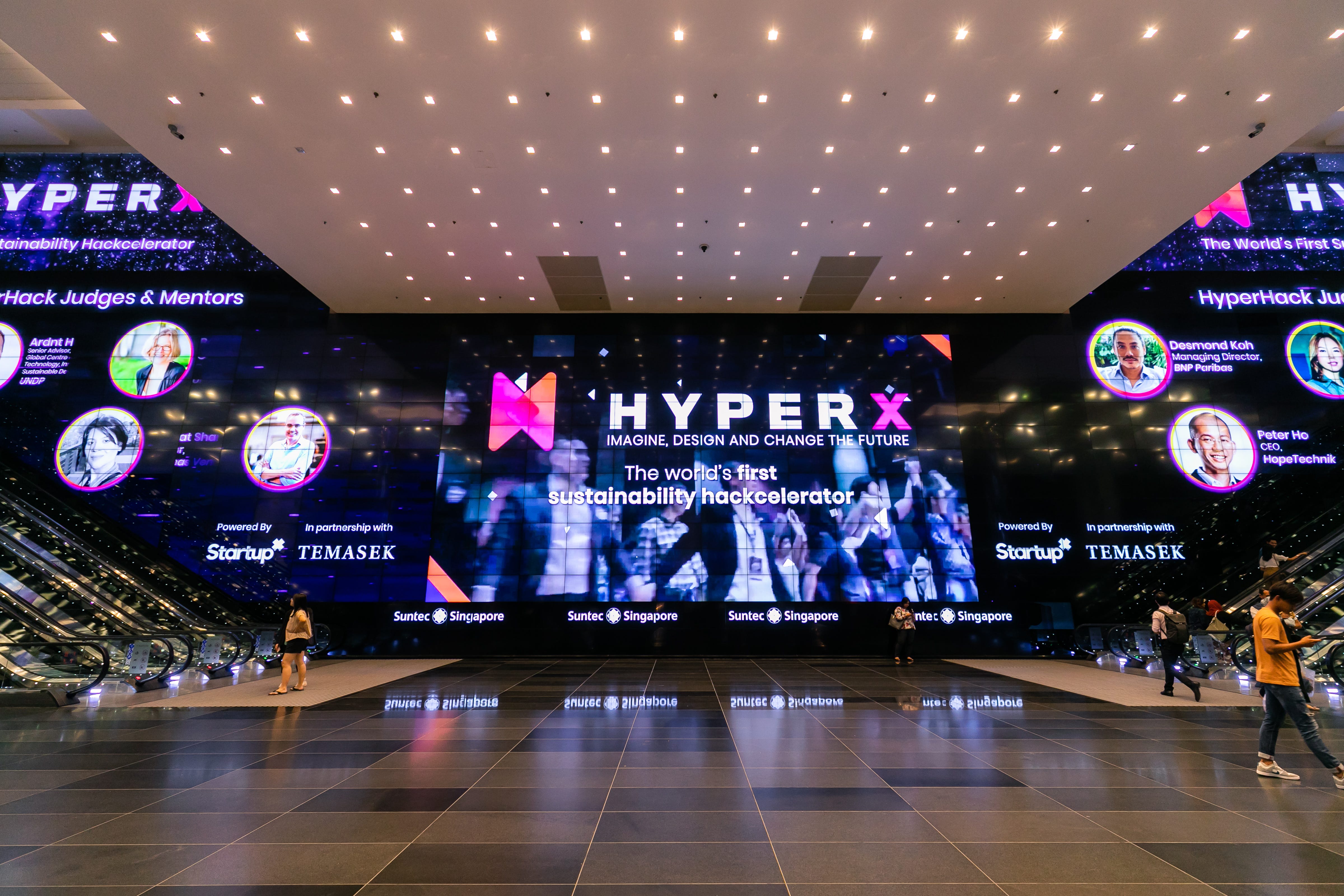
Held between 8th to 10th November, the HyperHack hackathon was co-developed by Singapore-based investment company Temasek, and innovation consultancy firm StartupX, which sought to inspire technological solutions that address the United Nations Sustainable Development Goals. Bringing together innovative minds across various disciplines and walks of life, HyperHack is the first phase of the world’s first sustainability “hackcelerator”, HyperX.
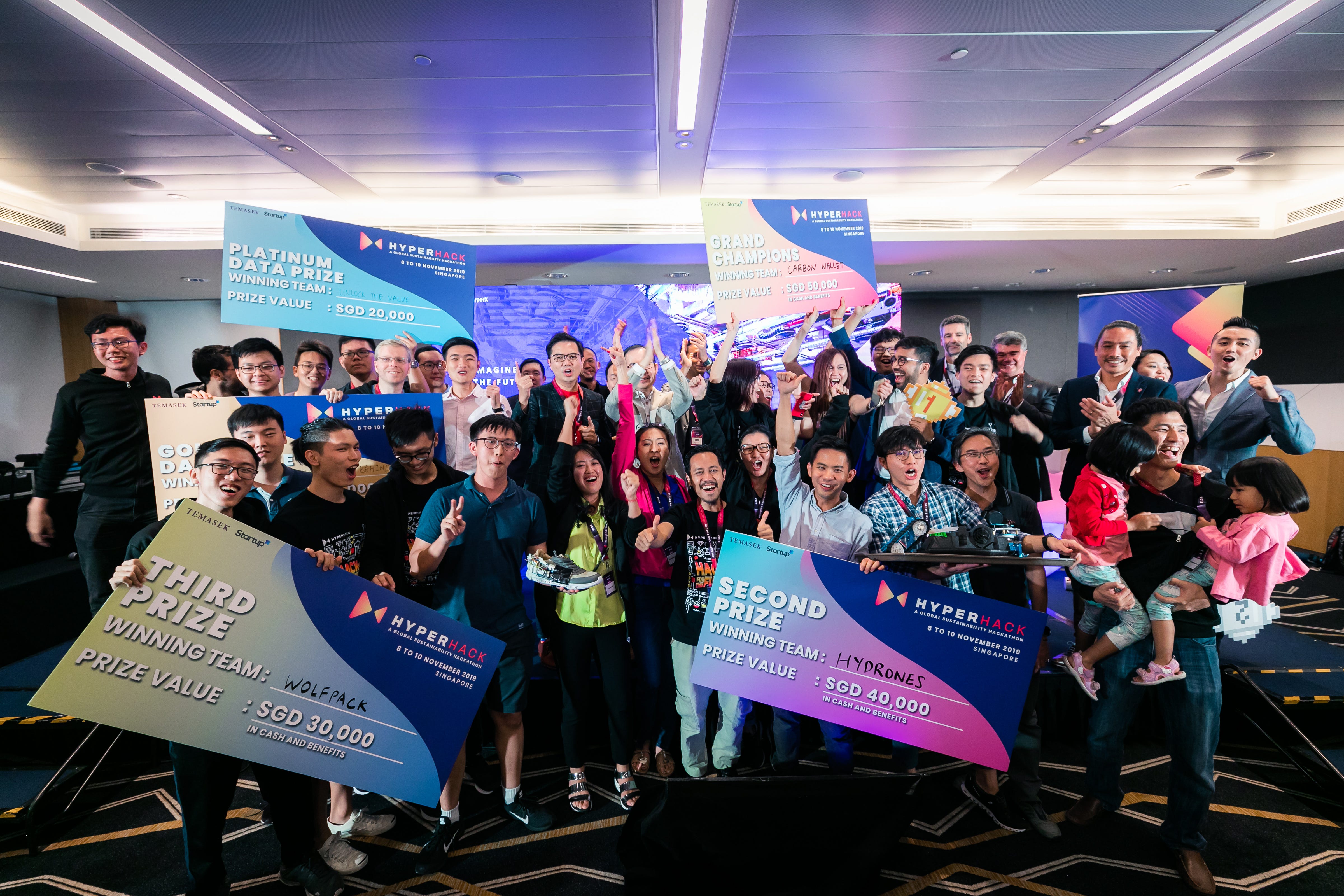
It was an amazing experience for all the participating teams, and especially so for the winners. The HyperHack’s grand champions, Carbon Wallet, walked away with 50,000 SGD worth of cash and other benefits. Teams Hydrones and Wolfpack came in first and second runners-up respectively. The winning teams were selected by a highly distinguished judging panel that included professionals such as Mark Lim, Managing Director, Digital Technology at Temasek; Chris Yeo, Head of Grab Ventures; Barbara Guerpillon, Director of Unilever Foundry, and Lim Qing Ru, Partner at True Global Ventures.
HyperHack set itself apart from the hackathon crowd with its unprecedented emphasis on sustainability, alongside many other unparalleled key features such as being hosted at Singapore’s Suntec City Convention Centre and Exhibition Hall as the venue’s first-ever overnight event. It also brought together a global community of passionate individuals into one of the world’s leading ecosystems in pioneering smart and sustainable solutions for the future. In line with the Singapore government’s efforts to foster stronger sustainability practices in the country, HyperHack is well-positioned to tap into local support to maximise the growth potential of ideas formulated by its participants.
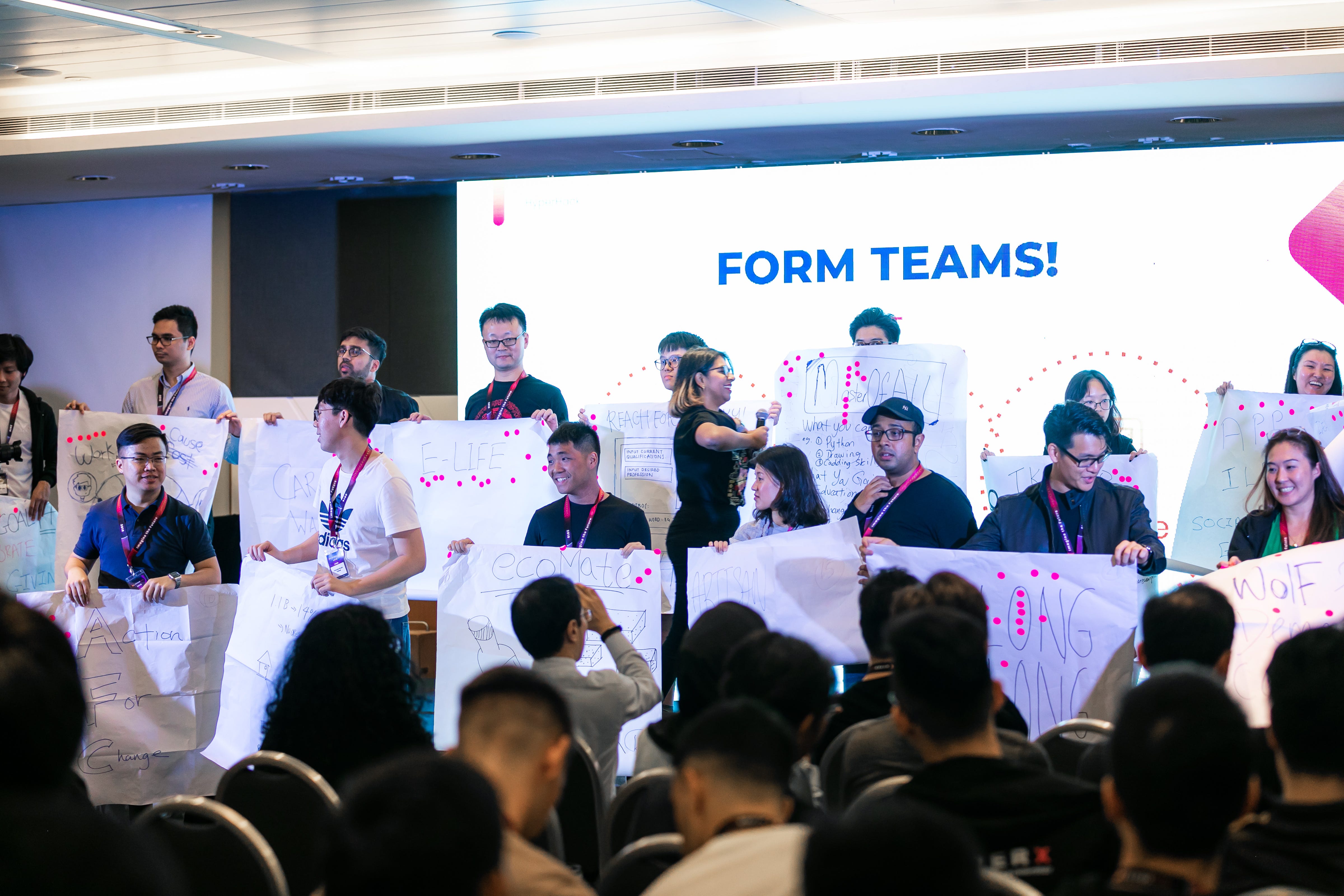
Instead of expecting teams with ready minimum-viable-products, business models, or even ideas, HyperHack’s flow allowed for teams to spontaneously form on-venue. This spontaneity was further boosted by fast-paced, minute-long pitch sessions, which helped generate many radical ideas that participants could then vote for and for teams to work with. This lower barrier to entry also meant a longer timeframe that deviated from typical hackathons, with HyperHack lasting for nearly 52 hours instead of 24 or 48.
The decision to keep the entry requirement as low as possible without sacrificing purpose and quality was not arbitrary. Sustainability concerns various different communities, and these communities have different impressions on how to work towards solving a particular problem. Instead of narrowing the focus onto specific aspects of sustainability, HyperHack’s approach was to keep it deliberately broad so that people from all walks of life could contribute ideas and opinions. This openness also enabled a highly open and value-free discussion that was beneficial in generating new perspectives to addressing sustainability issues.
“It’s my first time at such a hackathon, and (unlike other hackathons), you come here, you brainstorm with people and then you come up with the idea right (at the venue) … to me, it’s awesome”, pointed HyperHack mentor Mr. Eugene Wang, founder and CEO of Sophie’s Kitchen Inc.
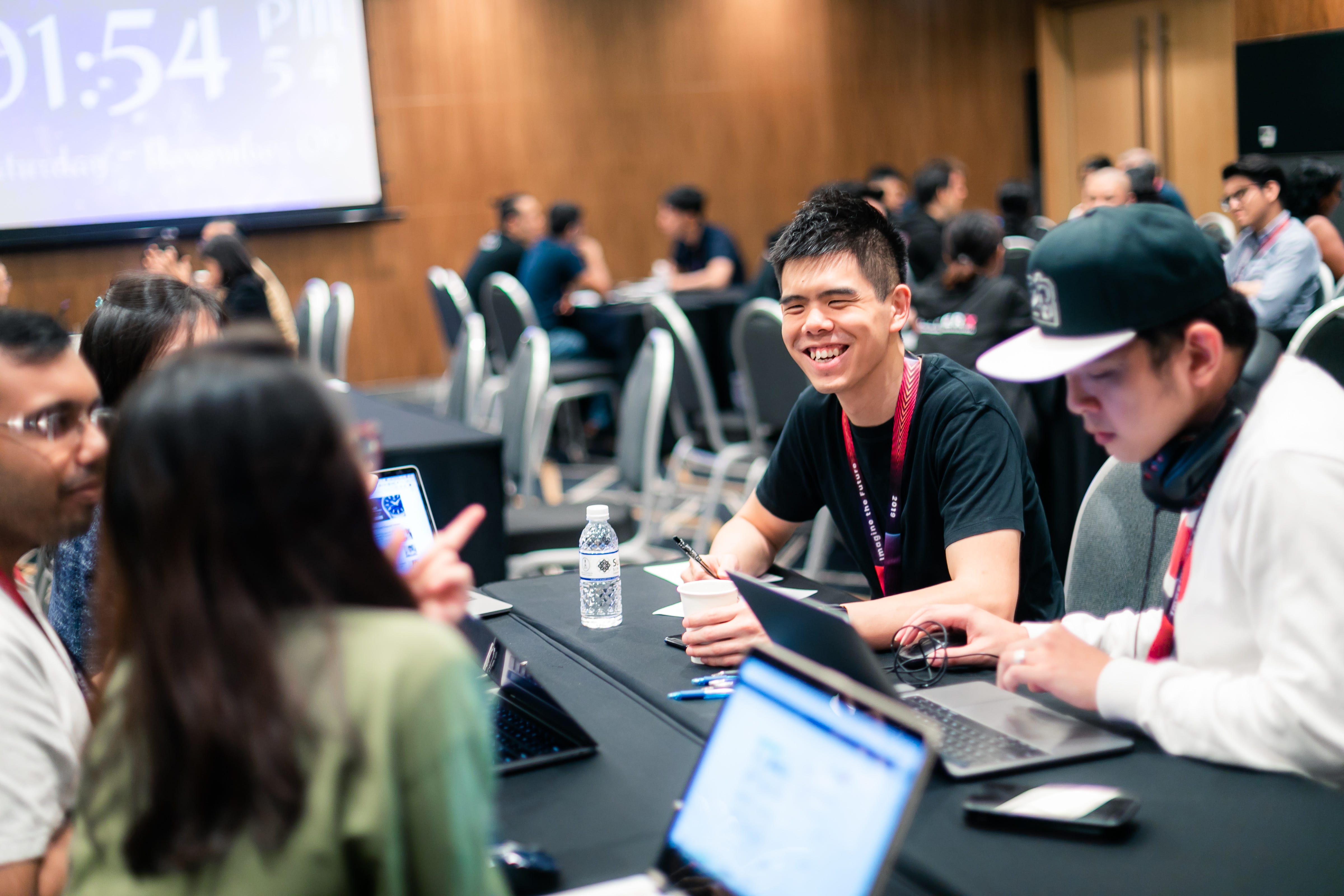
Unlike typical hackathons that require a ready idea, pitch deck or even business model, HyperHack invited participants to simply come with an open mind, make connections with one another, and then brainstorm for ideas on-venue. The lower barrier to entry no doubt helped enhance the diversity of the event, which saw participants ranging from secondary school students to seasoned business owners, all equally passionate about driving sustainable progress. Indeed, as HyperHack mentor and Carousell CEO Quek Siu Rui reflected, “when I dug deeper, I saw how the participants were so passionate about creating a movement to drive awareness of sustainability, and I thought that that was such a powerful (way to do things)”.
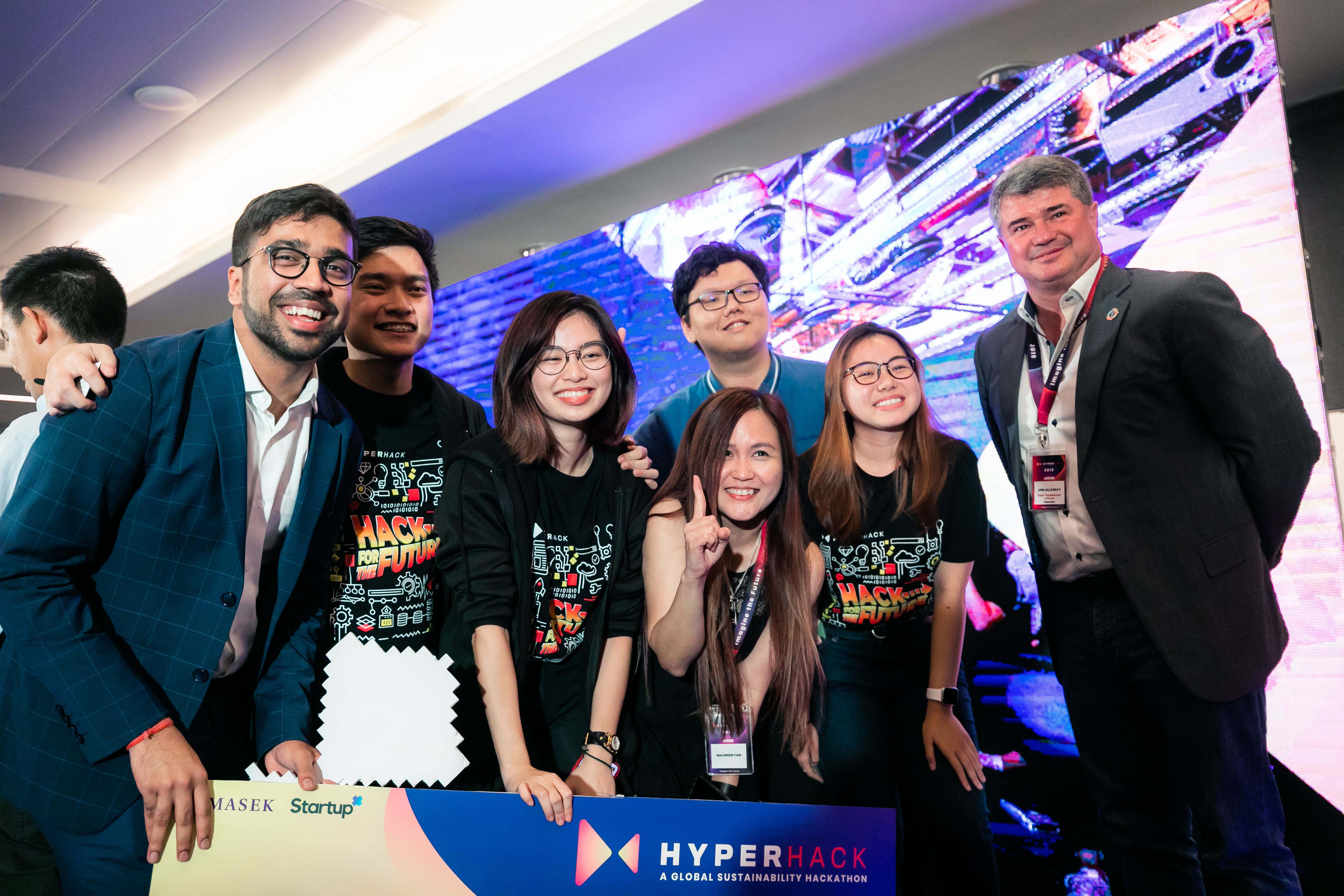
“Throughout the event, I could see this passion play out in the ideas and pitches, which was undeniably inspiring”, said Ms. Rachel Hartono, whose group, Carbon Wallet, was crowned HyperHack’s grand champions. Indeed, the shared energy, mixed with the unique diversity sprung forth many exciting and groundbreaking ideas. Groups envisioned a future where central kitchens would provide shared spaces for culinary self-expression and drones that could clean up rivers. For Carbon Wallet, the team had designed a revolutionary carbon footprint aggregator that could better inform consumers and enable them to make more environmentally conscious decisions.
As HyperHack clearly demonstrated, how we think about sustainability is vastly different from when the term first emerged nearly 3 decades ago. As the interconnectedness of society, economy, politics and the environment become glaringly obvious, communities around the world have begun to examine the linkages between climate change, environmental degradation, poverty, and inequality. The concept of local foodsheds, for example, emerged in light of unsustainable practices in the global industrial agriculture production chain; On an episode in Netflix’s “Broken” documentary series, we see how the use of plastic has led to unsustainable practices that only threaten the environment, but endanger human lives.
Unsustainable practices are analogous to a treadmill that only runs faster over time — current problems do not get solved, spillover effects from one problem exacerbate the others, and with time, these fundamental ills give rise to even more issues, rendering the question of sustainability ever more difficult to solve.
There is a clear need for us to move away from thinking “in silos” and instead synergize knowledge and skillsets across disciplines. Hackathons like HyperHack are the ideal place to begin — for participants, they get to learn new technical skills and hone soft ones, all while working towards an actionable solution derived from their visionary idea; for companies, it is a means of experimentation with external sources in ways that are amenable to established frameworks and processes. And for society as a whole, hackathons are the seeds from which new epistemic communities take shape and bridge differing interests, driving change with everyone on board.
HyperHack took everyone on board an immersive journey towards a more sustainable future, and its conclusion only marks the end of the beginning of a longer, harder push towards driving sustainability. As entrepreneur-investor Chris Sacca puts it, “ideas are cheap, execution is everything”. Getting a community together around ideas is only the start — what comes next, is bringing these ideas to life.
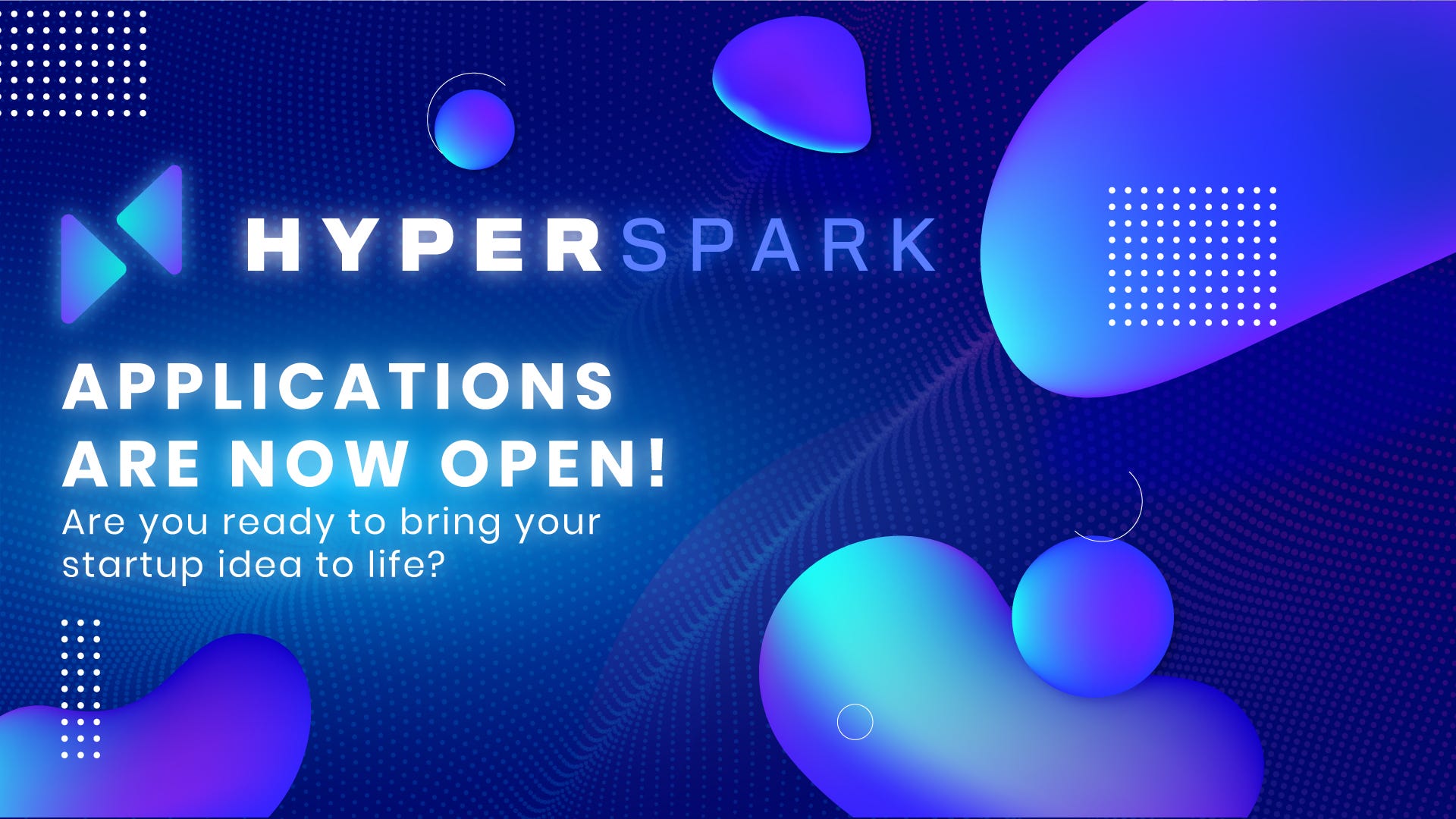
That’s why next up is HyperSpark — a pre-accelerator programme designed to empower high-potential startups to become tomorrow’s changemakers. If you are running an early-stage startup, and are super-passionate about sustainability, come and join us to build a better future together!






